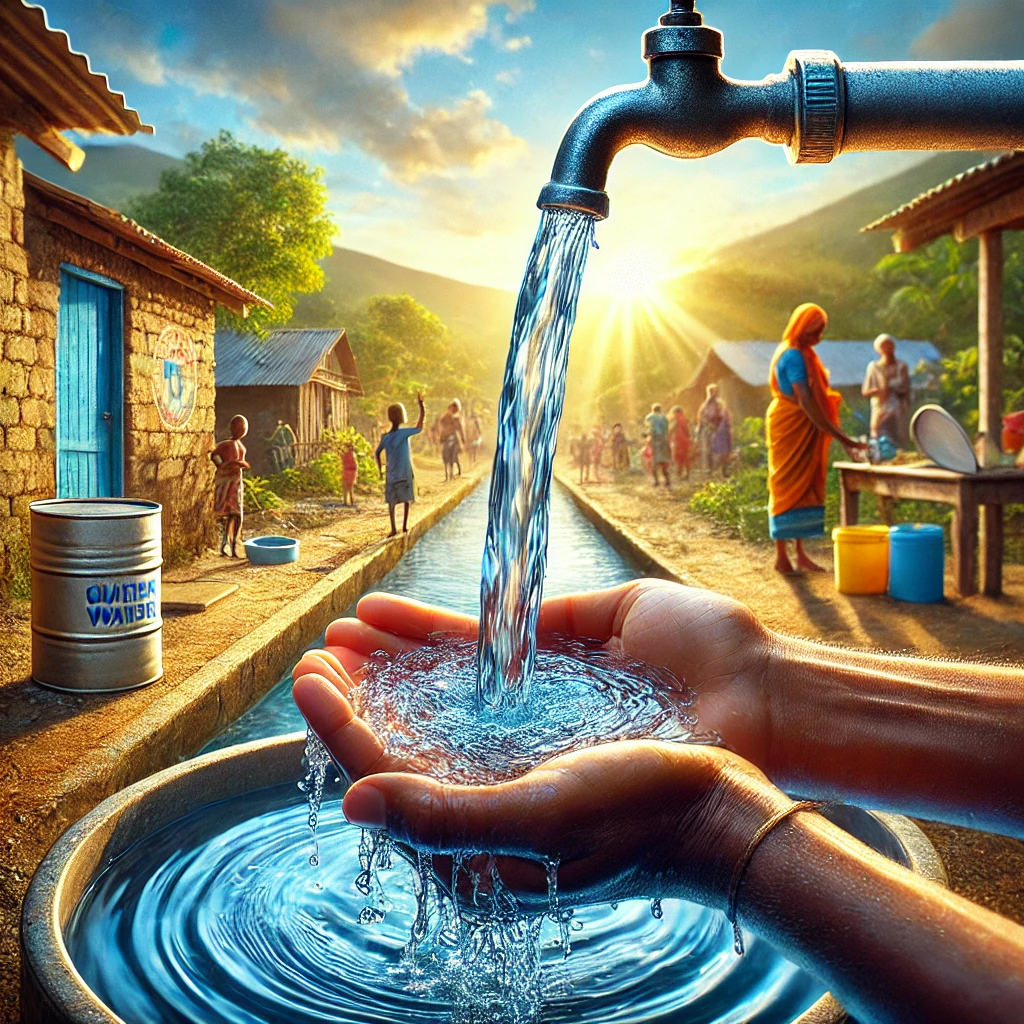Title: Clean Water and Sanitation: A Foundation for Health, Dignity, and Development
Access to clean water and adequate sanitation is not only a basic human right but also a cornerstone of sustainable development. As outlined in the United Nations Sustainable Development Goal (SDG) 6, ensuring the availability and sustainable management of water and sanitation for all is critical to improving health, reducing poverty, and supporting economic growth. Despite the importance of this goal, billions of people worldwide continue to struggle with access to safe drinking water and sanitation facilities, leading to widespread health issues, environmental degradation, and a lack of opportunities for social and economic progress.
The Importance of Clean Water and Sanitation
Access to clean water and effective sanitation systems is fundamental for maintaining good health. Waterborne diseases, such as cholera, dysentery, and typhoid, are prevalent in areas where clean water and sanitation are lacking. The World Health Organization (WHO) estimates that contaminated water and poor sanitation cause around 485,000 deaths from diarrheal diseases each year, most of which affect children under the age of five. Without clean water, personal hygiene, food safety, and overall public health are severely compromised.
In addition to its health impacts, water and sanitation have broad social and economic implications. Communities with reliable water supplies and sanitation infrastructure tend to experience better educational outcomes, as students can attend school regularly without suffering from waterborne diseases. Moreover, access to clean water reduces the time women and girls spend fetching water, a task that can take hours in certain regions, freeing up time for educational and economic pursuits.
Challenges in Achieving Clean Water and Sanitation for All
Despite the recognized benefits, numerous barriers continue to prevent universal access to clean water and sanitation. One significant challenge is the availability of resources and funding, especially in low-income countries where infrastructure investment is limited. Water scarcity, exacerbated by climate change, also poses a significant challenge. In many regions, water resources are depleting rapidly due to droughts, overuse, and pollution. According to the United Nations, by 2025, half of the world’s population could be living in water-stressed areas.
Furthermore, rapid urbanization in developing countries is putting immense pressure on existing water and sanitation systems. Informal settlements often lack basic infrastructure, leaving millions vulnerable to contaminated water and inadequate sanitation. Additionally, rural areas, which account for the majority of people without access to clean water, frequently lack the necessary infrastructure, technical expertise, and government support to address the issue.
Sustainable Solutions for Clean Water and Sanitation
Tackling the challenges of water and sanitation requires a multifaceted approach. Investment in infrastructure is crucial to providing sustainable access to clean water and sanitation. In rural and underserved areas, decentralized water systems, such as boreholes and rainwater harvesting, can help communities achieve greater water security. Technological innovation is also playing a role in enhancing access; for example, solar-powered purification systems and eco-friendly toilets offer cost-effective solutions, particularly in remote locations.
Community education and participation are equally essential. Empowering communities with knowledge about hygiene, water conservation, and maintenance of sanitation facilities can promote sustainable practices. Governments and NGOs can also encourage community-led initiatives for the development and management of water resources.
Policy reforms and governance play a significant role in ensuring clean water and sanitation. Governments must implement policies that regulate pollution, manage water resources sustainably, and ensure equitable distribution of resources. Strengthening international cooperation and funding mechanisms is also essential, as it allows countries with limited resources to gain access to financial and technical assistance.
Conclusion
Clean water and sanitation are vital for human dignity, health, and prosperity. Achieving universal access to these resources can transform communities, empower individuals, and foster sustainable development. Although challenges remain, especially in low-income countries and water-stressed regions, concerted efforts from governments, international organizations, and local communities can lead to solutions that are both innovative and sustainable. Addressing clean water and sanitation issues not only improves individual lives but also paves the way for healthier, more resilient societies worldwide.

